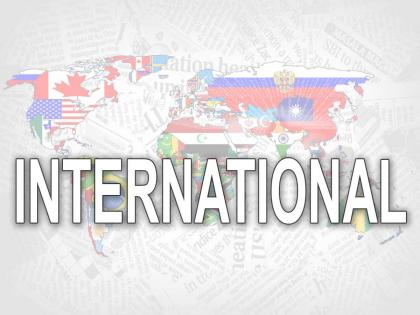Venezuelan economy shrinks 47.7% in 5 yrs, inflation topples 130,060% in 2018: Central Bank
By ANI | Published: May 29, 2019 04:00 PM2019-05-29T16:00:04+5:302019-05-29T16:05:07+5:30
Venezuelan economy has shrunk by 47.7 per cent since 2013, while the inflation reached 130,060 per cent last year, the country's central bank reported in the first update on economic indicators in more than three years.

Venezuelan economy shrinks 47.7% in 5 yrs, inflation topples 130,060% in 2018: Central Bank
Venezuelan economy has shrunk by 47.7 per cent since 2013, while the inflation reached 130,060 per cent last year, the country's central bank reported in the first update on economic indicators in more than three years.
The report further said that the nation's oil export earnings stood at around USD 29.8 billion in 2018, which is 5.6 per cent less than the previous year, reports TASS news agency.
Economists believe that Venezuela's fall through the years is the single largest economic collapse outside of the war in the past 45 years. A recent article in the New York Times suggests that the crumbling of Venezuela's economy has even outpaced Zimbabwe's collapse under Robert Mugabe, the fall of the Soviet Union, and Cuba's disastrous unravelling in the 1990s.
The ongoing crisis has largely been compounded by the sanctions imposed by the Donald Trump administration, intended to force interim President Nicolas Maduro to transfer power to the nation's opposition leader and National Assembly President Juan Guaido.
Venezuela's hyperinflation, which is expected to reach 10 million per cent this year, according to the International Monetary Fund (IMF), is on track to become the longest period of runaway price rises since that in the Democratic Republic of Congo in the 1990s.
"This is essentially a total collapse in consumption," said Sergi Lanau, deputy chief economist at the Institute of International Finance, a financial trade association.
Furthermore, the country's Gross Domestic Product (GDP) will have shrunk by 62 per cent since the beginning of the recession in 2013, which coincided with Maduro's coming to power.
Earlier this year, the Latin American country plunged into political crisis after Guaido proclaimed himself as President amid throngs of cheering supporters who called for Maduro to step down.
The crisis took its worse turn on April 30 when Guaido declared he was "beginning the final phase of Operation Freedom," in an apparent bid to oust Maduro. His call led to protesters collecting at the La Carlota military airbase, where a confrontation between the opposition leader's supporters and Maduro's supporters took place. In the clashes that ensued, at least 71 people were injured.
( With inputs from ANI )
Open in app